
This series features the movie questionnaires and reviews from 2015 published by our site's regular film critics. We continue with critic Glenn Kenny, who has reviewed such films as "Ant-Man," "Clouds of Sils Maria," "Hard to Be a God" and "Timbuktu." His Twitter handle is @Glenn__Kenny.
QUESTIONNAIRE:
Where did you grow up, and what was it like?
I grew up in Northern New Jersey, and it was largely unpleasant, but it certainly helped me build really unhealthy culinary tastes.
Was anyone else in your family into movies? If so, what effect did they have on your moviegoing tastes?
My mom liked movies, and she helped me get into them by asking five-year-old me to stay up with her and keep her company to watch "The Haunting" on network television around 1965 or '66. Changed my life!
What's the first movie you remember seeing, and what impression did it make on you?
The legend is "Psycho," at the age of one, sitting between my folks at the drive-in. But of course I really don't REMEMBER that. I DO remember seeing the drunk-driving-off-a-cliff business in "North by Northwest" from the back of my folks' car at a drive-in some time after that, so I guess that's the thing. It made an impression, but not enough of one to positively effect certain future life decisions.
What's the first movie that made you think, "Hey, some people made this. It didn't just exist. There's a human personality behind it."
I honestly couldn't tell you. I do remember when I was about seven (around 1966 or '67) I asked my mom why she thought the French director Jean-Luc Godard wore tinted glasses all the time and she answered, "It could be an affectation."
What's the first movie you ever walked out of?
John Derek's 1981 "Tarzan, The Ape Man," starring Bo Derek. I left during Richard Harris' death scene, but I couldn't stay walked-out 'cause I had attended with my pals. So I came back in after what I thought were 20 minutes and Richard Harris was still doing his death scene.
What's the funniest film you've ever seen?
Some amalgam of "Duck Soup," "Blazing Saddles," and "Love and Death," depending.

What's the saddest film you've ever seen?
Leo McCarey's "Make Way For Tomorrow"
What's the scariest film you've ever seen?
Roman Polanski's "Repulsion"
What's the most romantic film you've ever seen?
"Manhattan." Just kidding! Probably McCarey's "An Affair to Remember."
What's the first television show you ever saw that made you think television could be more than entertainment?
"Monty Python's Flying Circus"
What book do you think about or revisit the most?
John Barth, "The End of The Road," or Kafka's "The Metamorphosis and other stories" in Michael Hoffman's translation
What album or recording artist have you listened to the most, and why?
Some amalgam of John Coltrane, The Beatles, and King Crimson.
Is there a movie that you think is great, or powerful, or perfect, but that you never especially want to see again, and why?
No.
What movie have you seen more times than any other?
Either "Alphaville" or "Psycho."
What was your first R-rated movie, and did you like it?
"Frenzy," and since I duped my grandmother into taking me to it when I was twelve, it was a distinctly awkward experience.

What's the most visually beautiful film you've ever seen?
Tarkovsky's "Stalker."
Who are your favorite leading men, past and present?
Past: Robert Mitchum. Present: Philip Seymour Hoffman. I guess Hoffman belongs to the past now but I can't name a "replacement."
Who are your favorite leading ladies, past and present?
Claudette Colbert, Scarlett Johansson.
Who's your favorite modern filmmaker?
Godard.
Who's your least favorite modern filmmaker?
What film do you love that most people seem to hate?
Most people despised Garrel's "Frontier of Dawn" a few years back but I think it's awesome.
What film do you hate that most people love?
"Hate" is a pretty strong word but I have very little use for "The Artist"
Tell me about a moviegoing experience you will never forget—not just because of the movie, but because of the circumstances in which you saw it.
"Frenzy". See my answer above to "first R-rated movie".
What aspect of modern theatrical moviegoing do you like least?
So much to choose from! That said "stadium seating" is a fraud on several levels (a properly designed theater doesn't need it for the sake of sightlines).
What aspect of moviegoing during your childhood do you miss the most?
The ability to ingest huge amounts of candy with physical impunity.
Have you ever damaged a friendship, or thought twice about a relationship, because you disagreed about whether a movie was good or bad?
Not really. A couple of times it seemed like that, but there was always a deeper root cause behind whatever rift resulted.
What movies have you dreamed about?
Not as many as you'd think.
What concession stand item can you not live without?
It's more a question of all the concession stand items I ought to live without. But I do love the Coca-Cola Freestyle machines popping up in theaters these days. Pibb power!
REVIEWS:

Adult Beginners **1/2
The conventions of the contemporary character-driven ethnically monochromatic independent film, [...] while not entirely grating, do keep the movie in a generic slough of sorts. If you’re a big booster of any of the lead actors (I’m something of a [Bobby] Cannavale partisan myself), this will be worth your time.

Alex of Venice **1/2
It’s so even-tempered that a crankier viewer than myself might accuse it of slathering bland compassion on its characters like California sunshine pouring through a very tastefully-opened aperture.

Ant-Man ***1/2
“Ant-Man” […] achieves its particular magic by keeping its proceedings almost as weightless as its shrunken-down hero. The movie, directed by Peyton Reed (“Down With Love,” “Bring It On”) and starring Paul Rudd, isn’t exactly or entirely fluffy, but it’s pretty damn agile, and as a result provides the most pure, uncomplicated fun, and even joy, of any Marvel picture I’ve seen.

Ardor **1/2
Gael Garcia Bernal and Alice Braga […] ought to make an exemplary onscreen couple. You’d think. And the pair is certainly not wasted in “Ardor,” a visually sumptuous kind of contemporary eco-Western (sounds more complicated than it is, honest) from Argentine director Pablo Fendrik. But what chemical reaction they try to roil never accelerates to a really satisfactory level.

Backcountry **1/2
A very-well executed wilderness thriller [that is] pretty effective but in the end, somehow empty.
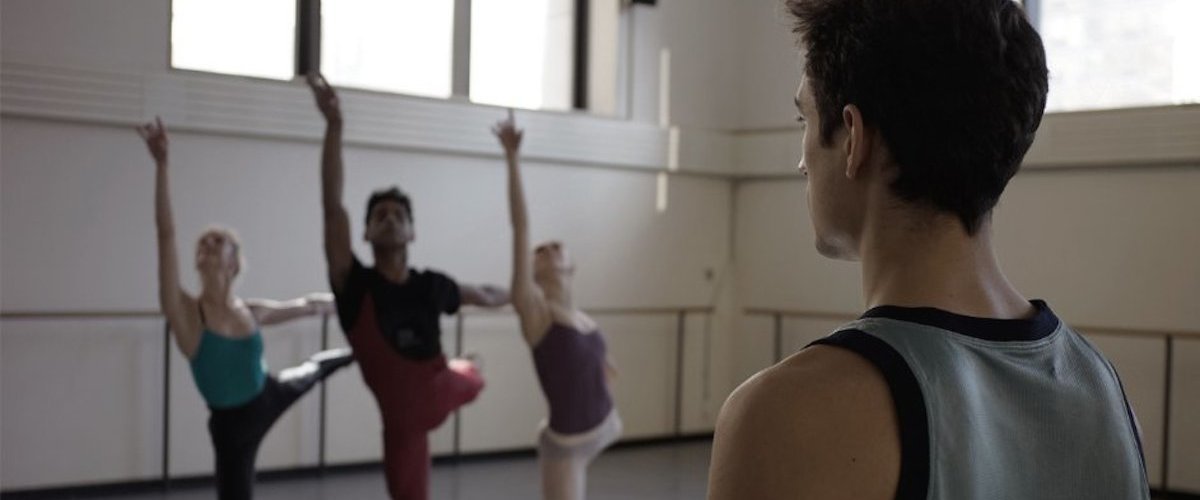
Ballet 422 ***
The movie, which sticks to a relatively rough-and-ready handheld visual style for the most part, [...] ends on a very beautiful and still shot of the site of the City Ballet that will remind New York-based viewers of their cultural privilege, and maybe goad them into taking advantage of it more often.

Being Evel **1/2
The movie is certainly colorful—this is a guy who, when he had it made, lived VERY large, even if he continued on what seemed like a quest to break every bone in his body multiple times. And it tells, as it keeps reminding us, a very American story. For all that, though, it doesn’t illuminate the guy’s character beyond what’s obvious.

Beloved Sisters ***
While “Beloved Sisters” is undeniably conscientious in its attempt to simulate the foment of what I’ll call pre-Romanticism in late 18th-century Germany, and engagingly depict the conditions of life in that time and place, the movie ultimately has the most value as a showcase for two exceptional performers, the young actresses Henriette Confurius and Hannah Herzsprung.

Honestly, I think I’ve had enough of American Male Existential Crisis in film, period. Unless you’re as good as Antonioni (who, we should recall, treated anxiety in BOTH GENDERS over the course of his career) you really shouldn’t bother.

Bluebird ***
The resolution of the film doesn’t come in the form of a “eureka” moment in the investigation, or the filings of the lawyer who cagily presents his services (and hints at their potential rewards) to Maria and Crystal at the hospital. It comes in the looks on the faces of the characters as they make the determination to try to live their lives.

Burying the Ex *1/2
Even masters have their off days, however, and [Joe] Dante’s new picture, “Burying The Ex,” seems to have been made over the course of quite a few of them. Scripted and co-produced by Alan Trezza, and admittedly shot on the cheap over what must have been a very punishing 20-day shoot, the picture has intermittent charm and very little flair.
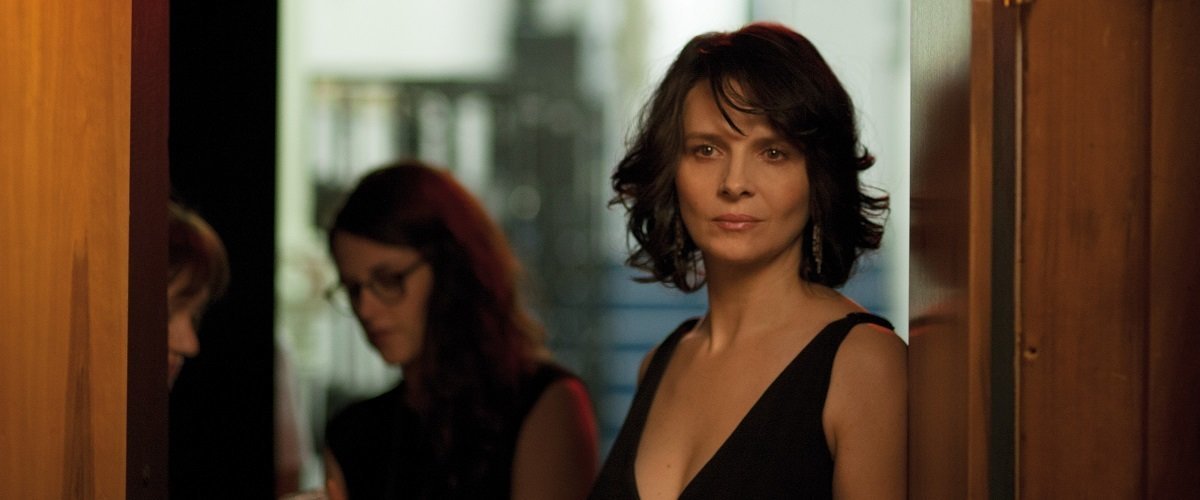
Clouds of Sils Maria ***1/2
It's one of those moves that make a second viewing worth contemplating. In any event, the pleasures of the acting and the ever-acute visuals are apt to make a second viewing a distinct pleasure, even if it doesn’t solve anything.
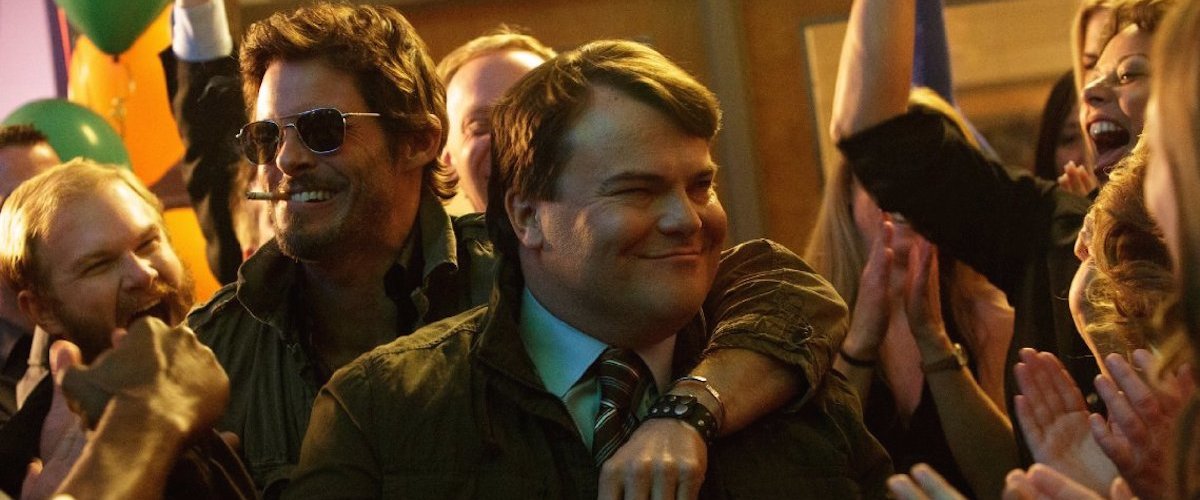
The D Train *1/2
Male sexuality, brutality, and insecurity are all subjected to scrutiny. Not with dry humor and merciless precision but the worst indie-film conventions concerning nerdiness, and butter tubs of sentimentality. The movie goes for grin-and-cringe-inducing, and instead achieves “excruciating.”
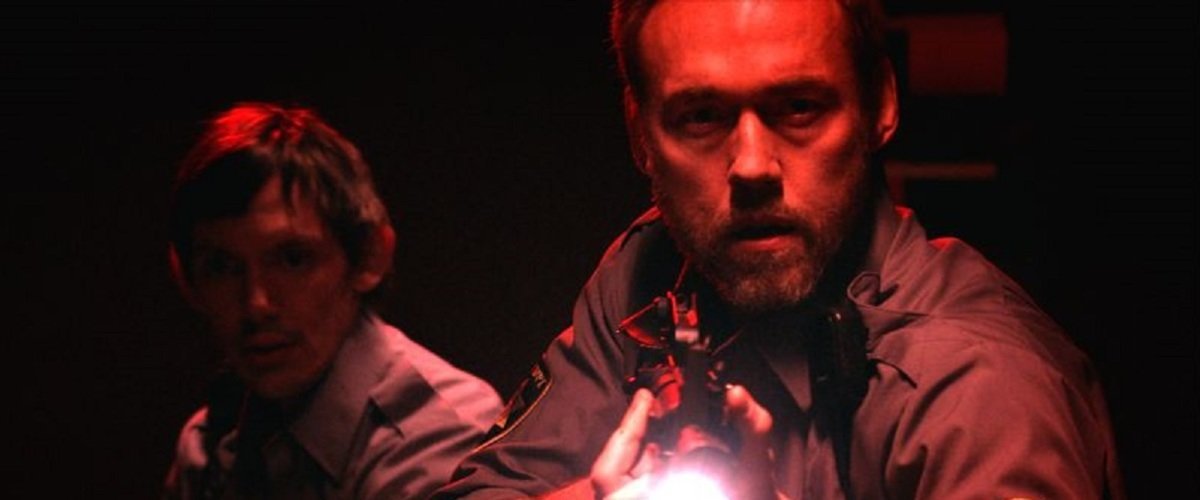
"Dark Was the Night" does, deliberately, build to a tense and sometimes jump-from-your-seat scary climax […] As for the creature itself, it could have been pretty ridiculous, but a combination of smart effects design (I believe Danny Shinwoong Kang is the responsible effects person) and cinematic discretion make the damn thing work. And so, too, does the movie itself.

I’m both surprised and somewhat gratified to be able to say that the Relativity production “Desert Dancer,” based on the true life story of a dance performer and underground impresario going up against the repressive Iranian regime and its more thuggish supporters is, while hardly perfect, a movie that frequently displays surprising sensitivity and sensibility.

Drunk Stoned Brilliant Dead: The Story of the National Lampoon **1/2
It’s an engaging and entertaining film, filled with funny anecdotes expertly related. […] As watchable as the movie is, it’s an almost relentlessly incurious history.

The Duke of Burgundy **1/2
A daring, atmosphere-soaked piece of kink hypnotherapy that pays explicit homage to the films of [Jess] Franco, down to the casting of former Franco regular, formidable femme Monica Swinn, in a sinister role.

For better or worse, at the end credits of “The 11th Hour,” the viewer will, I can confidentially predict, have a “Well, THAT was something” feeling. Whether the “something” part is considered good or bad I won’t hazard, but there you have it.
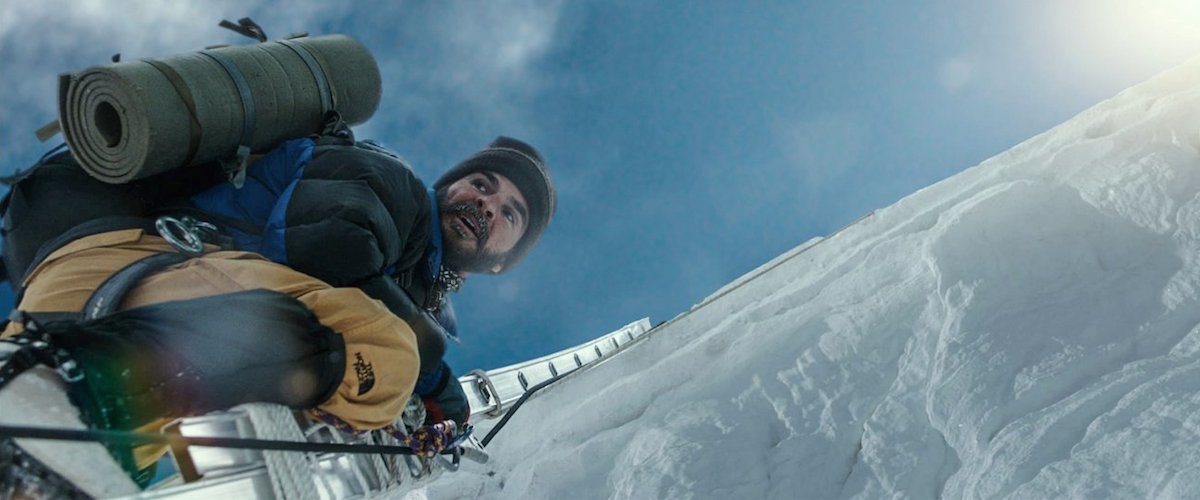
Everest **1/2
I’ve not read [Jon] Krakauer’s book, but perhaps I should. Coming out of this movie, the story remained upsettingly senseless to me, and an inapt one for a movie that. Despite its attempts at empathy, "Everest" often plays the cinematic thrill ride card.

The Face of an Angel *1/2
What might have looked provocative on paper winds up looking kind of cheap and opportunistic on screen, leaving Thomas’ petulant complaint, “I don’t want to make a film about fear or death or killing; I want to make a film about love,” ringing hollow in one’s ears at the end.
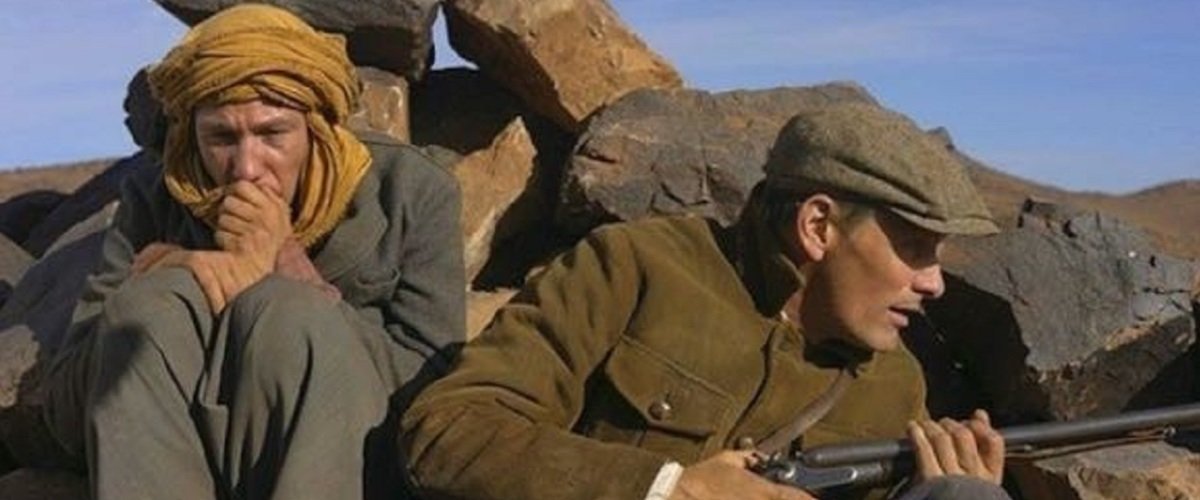
Far from Men **1/2
In addition to muffing the dénouement of the story on which it’s based, “Far From Men” is also the kind of movie in which sobriety and a stalwart sense of seriousness yield more inertia than profundity.

5 to 7 *
Writer/director [Victor] Levin, an old television hand, is clearly looking to make his own “Stolen Kisses”—his Truffaut fandom extends to strategically placing a “Jules And Jim” clip in the movie—but the stupefying level of wish fulfillment here makes the film play, oddly, like a much more refined “Killing Zoe.”

Grandma ***1/2
“Grandma” is a modestly scaled character comedy-drama that winds up exerting an almost shockingly strong emotional force by the end. I walked into a screening of the film a mild skeptic, and I left nearly in tears, and grateful for where writer-director Paul Weitz and a remarkable cast led by Lily Tomlin took me.

Hard to be a God ****
“Hard To Be A God,” the final film by the inspired Russian director Alexei German [...] is not only an unforgettable individual masterpiece but probably one of the capital-G Great Films. You’ll need a strong stomach and another kind of endurance to sit through it, as it’s nearly three hours long and is more than a little oblique in its approach to narrative, [...] but once it is over you know you’ve really had an experience.

Hot Pursuit **
As a delivery system for a newly minted and reasonably engaging if not always laugh-out-loud comedy team—Reese Witherspoon and Sophie Vergara—“Hot Pursuit” works, arguably, as well as it has to for much of its brisk hour-and-a-half.
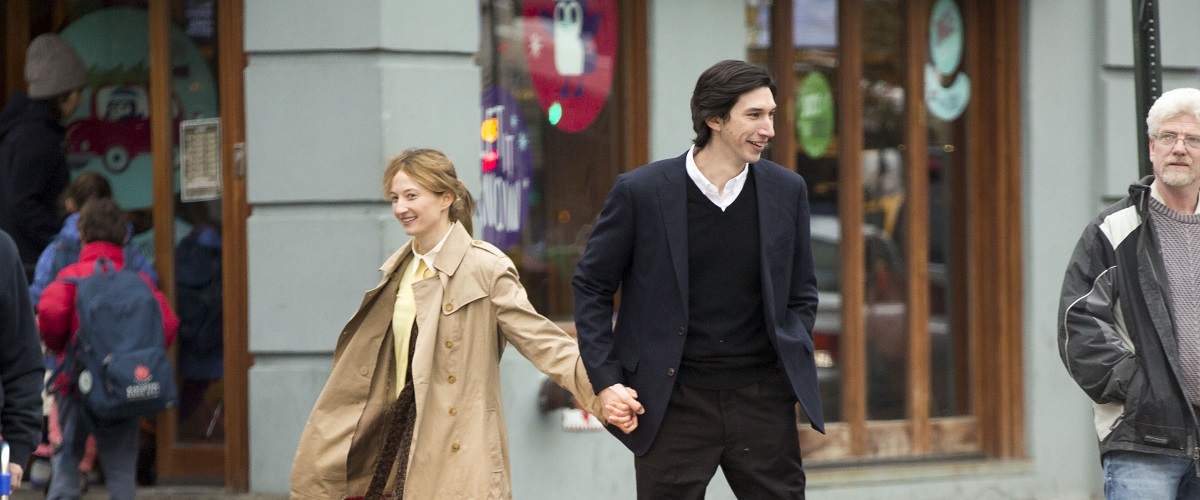
This really is the sort of movie which, when you describe it to a relative who’s asking you what you’ve reviewed lately (presuming you’re a movie reviewer), they would say, “Who would want to see a movie like that?” If the movie were actually a good one—which I think in this case would be impossible, not because the material is so inherently intransigent, but because the specifics of the materials are contrived in such bad faith—you’d be left stammering impotently. But because the movie is this very bad one, you just say, “Right?”

I'll See You in My Dreams ***1/2
It’s always a pleasure to see Blythe Danner in a movie. And it’s even more of a pleasure to see Blythe Danner in a good movie. No, not a good movie. A really good movie. Which “I’ll See You In My Dreams” actually is, its iffy (but explainable) title notwithstanding.

The Intern ***
“The Intern,” while having its share of silly moments, is the most genuinely enjoyable and likable movie that [Nancy] Meyers—a longtime writer and producer before taking up directing—has put her name to since, oh, I don’t know, 1984’s “Irreconcilable Differences.”

Jimmy’s Hall ***
[Ken] Loach’s matter-of-factness as both a person and an artist is reflected in the reality that, for better or worse, there’s nothing about “Jimmy’s Hall” that suggests a swan song or a grand summation. It’s just another solid Loach film, an affectionate realist portrait of individuals fighting against state and religious oppression.

The Kidnapping of Michel Houellebecq **1/2
Let’s just say that this is pretty much the opposite of a contemporary American comedy: rather than broad, “The Kidnapping of Michel Houllebecq” is an exemplary example of narrow.

The requisite spurting gunshot wounds to the neck are also here; what isn’t here is engaging dialogue, [...] engaging characters, or any kind of convincing reason-for-being with respect to the whole enterprise. One is apt to mourn the time wasted not just by the movie’s living participants, but also by the VW bug. All participants could have gotten up to something far more enjoyable.

Kumiko, the Treasure Hunter **1/2
It plays out as a deliberate, somber character study that semi-eerily morphs into comedy of middle-American manners and then into something else again.

Labyrinth of Lies **1/2
There’s a compelling cinematic story here, perhaps, but [Giulio] Ricciarelli’s movie is too diffused and scattered and, especially in its first hour, too reliant on commonplaces.
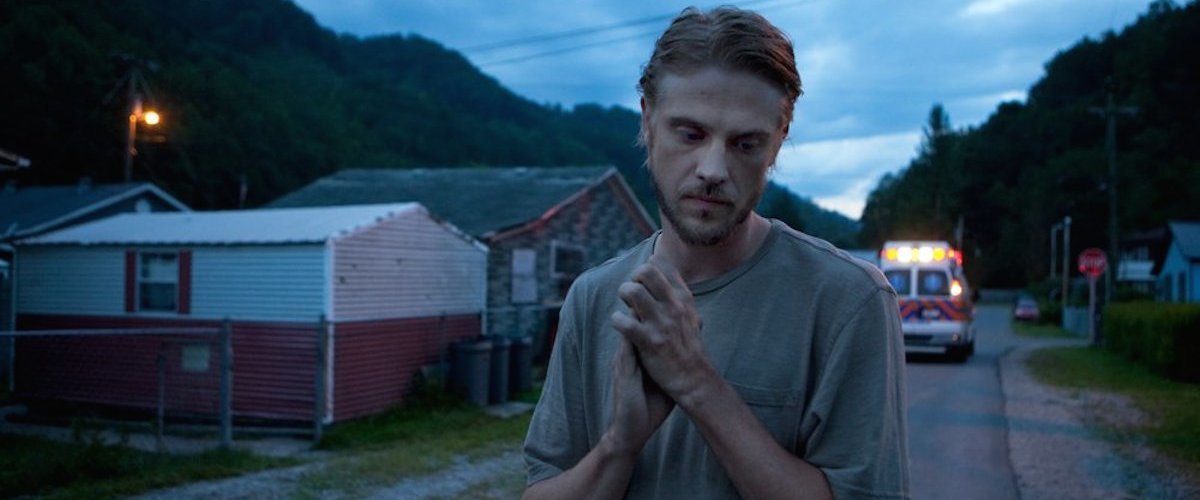
Little Accidents *1/2
While the players do their level best, […] the clichéd solemnity of almost each and every scene […] and the predictability of the action put me in a bind; as much as my conscience wanted to empathize with the characters, my taste only wanted to be rid of them.

The Look of Silence ***1/2
[Joshua] Oppenheimer’s new film, “The Look of Silence,” is a deliberate companion piece to “[The Act of] Killing,” and it too is strong and upsetting. Its conceptual framework isn’t nearly as idiosyncratic as the previous film’s, and that could be to its advantage.

Love & Mercy ***
[Bill] Pohlad, [...] working from a daring script by Oren Moverman and Michael Alan Lerner, and using two first-rate actors to play Wilson at two turning points in his life, lavishes his material with love, attention to detail, and empathetic imagination. The result is a story that’s hair-raisingly watchable and frequently moving, regardless of what you believe you might already know of [Brian] Wilson’s life.
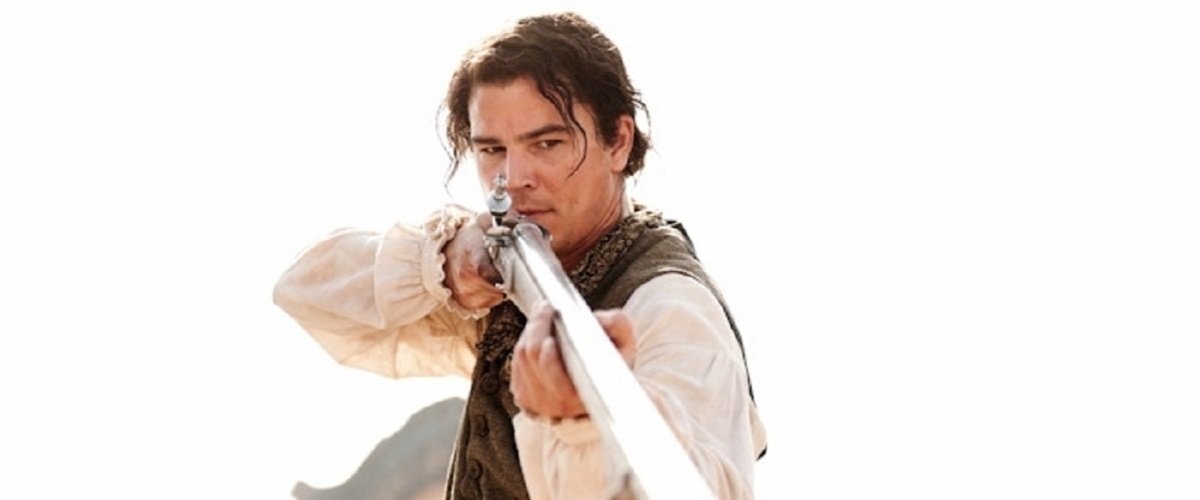
The scenic cinematography by Ben Nott is often beautiful, which distracts, at times, from the fact that the storyline is both convoluted in the most gratuitous way possible and that it’s enacted in the most unengaging way imaginable. [...] “The Lovers” is both worse and perhaps better than a drag: it’s a tranquilizer.

Man from Reno ***
“Man From Reno”—reviewers are going to almost reflexively want to call it “The Man From Reno,” but once they’ve actually got the movie in mind they’ll be reminded there’s a good reason that’s not the title—is an intricately, even densely, plotted mystery/thriller that casts an unusual spell from its opening scene.
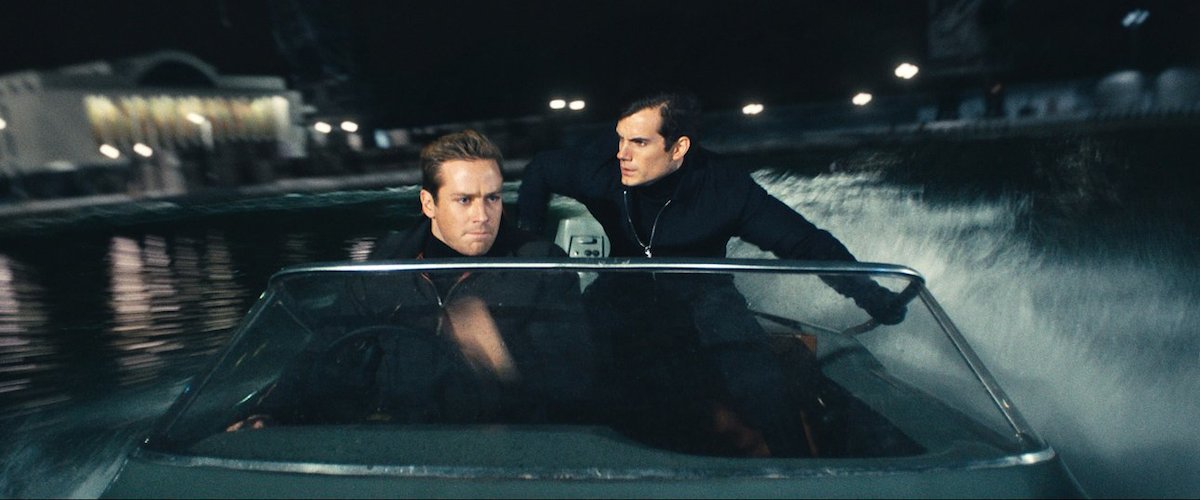
[Guy] Ritchie clearly wants to revel in a pre-swinging-‘60s vibe, but he either can’t or won’t commit to it in a way that yields any actual fun. Possibly he’s wary of bumping up against “Austin Powers”-style pastiche, but whatever the cause, when he’s not being incoherent, he’s being fussy.

Match ***
“Match” has enough meaty and engaging character material to effectively sidestep the very theatrical contrivance of its plot premise, which does have a great deal of potential for reversal and counter reversal and indeed takes full advantage of that potential.

McFarland, USA ***1/2
Kevin Costner reaches a welcome career high in this new movie, a live-action based-on-a-true-story inspirational tale of school sports, produced by Disney. It sounds a little over-determined when described that way, I know. But one thing I almost forgot going into this picture is that this kind of picture is the kind of thing that Disney can do very well. And it is very well done here, thanks in no small part to the superb direction of Niki Caro.

Medeas **
[Andrea] Pallaoro’s imagery sometimes suggests Kubrick, sometimes Terrence Malick, and sometimes other American Classics: there’s one shot near the end that practically screams “Christina’s World.” But Pallaoro seems too polite, too discreet, to bring the galvanic kind of emphasis the story seems to call for. […] At the end, I felt suspended between “so beautiful” and “so what.”

Mommy *
One gets the feeling that Dolan finds [the character of Steve] admirable somehow, which rubbed this critic very much the wrong way. To the extent that as the movie trudged on, whenever some misfortune befell the boy, I found myself reminded of the notorious reactionary conservative cartoonist Al Capp’s observation that by his lights, “Easy Rider” had a happy ending.

This movie, a gritty kind of bildungsroman set in an extremely particular music and dance scene in working-class Britain in the early ‘70s, is an apt fit for [Elaine Constantine’s] talents. […] However, where this movie comes up short is in bringing any kind of real life to its bildungsroman side.

Old Fashioned **1/2
It’s incredibly rare to see an American movie with a Christian perspective that’s more invested in philosophizing and empathizing than in eschatological pandering, and for that alone “Old Fashioned” deserves commendation.

The 100-Year-Old Man Who Climbed Out the Window and Disappeared **1/2
This movie, as it happens, is a comedy, but it’s a frequently grisly one, and one that makes rollicking fun of a lot of dark Swedish preoccupations.
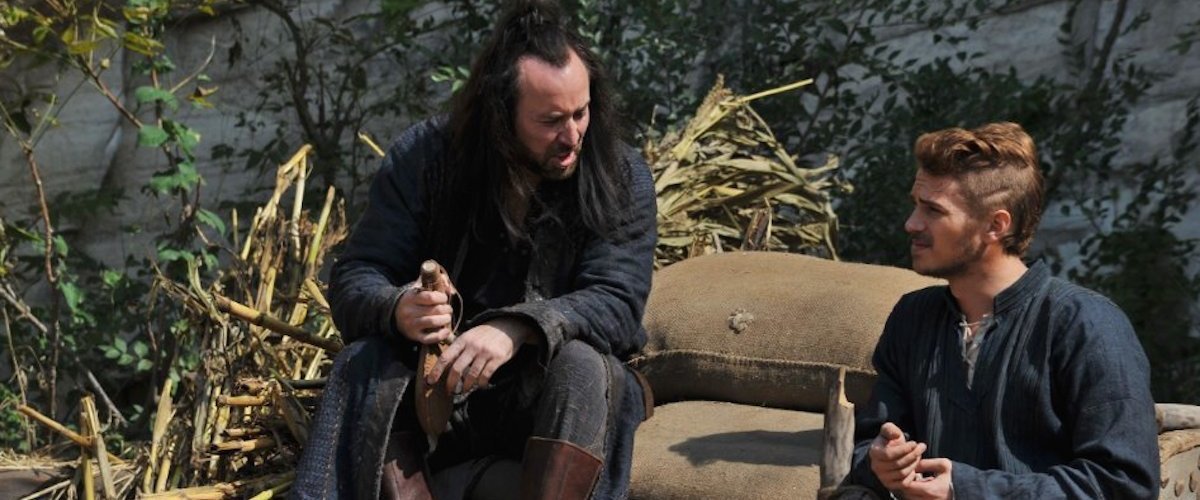
Outcast *
Aside from providing an object lesson in how Chinese film financing forces some rather remarkable storyline convolutions into generic international action pictures, “Outcast” provides nothing of interest. There are hundreds of good to great action movies out there that you could watch instead of this. Some of them star Nicolas Cage. You’d be better off. Trust me.

The Rewrite **1/2
As predictable as it is, and as sometimes cloying as a few of the movie-insider jokes can get, [...] this movie earned my “almost good” rating of two and a half stars on account of the indeed plucky and winning work of the cast, which also includes J.K. Simmons and Chris Elliott as campus “types.”

“Music is the healing power of the universe,” Albert Ayler said. I kind of believe him. I reckon that [Jonathan] Demme believes him too. But not the way it’s depicted here. Here it’s more like “Music is the healing power of the I’m hiding under my couch out of embarrassment for myself and everyone involved.”

The Runner **
Lacking the sharp edge of [“The Candidate”], or the often irrational passion that for better or worse drives [Rod] Lurie’s movies (not to mention some of Oliver Stone’s), “The Runner” squanders at least one great performance ([Peter] Fonda’s) and delivers a dispiritingly inert cinematic experience.

The Salvation ***
“The Salvation,” a Danish revenge Western starring Mads Mikkelsen, is a very real movie, and it is directed by Kristian Levring (“The King Is Alive”), whose sensibility is a little more nuanced than that of the sensationalist [Nicolas Winding] Refn, which is all to this movie’s benefit.

San Andreas ***
I’m not sure whether it was the editing or my own willing suspension of disbelief but the CGI-manufactured scenes of mass destruction are among the most realistic in this mode I’ve ever seen.

Writer/director Anna Muyleart examines class and income difference in a much, much quieter register in “The Second Mother,” a domestic comedy-drama that starts off from a fairly pat premise but builds strength over the course of its careful, empathetic, and crafty unpeeling of its characters.
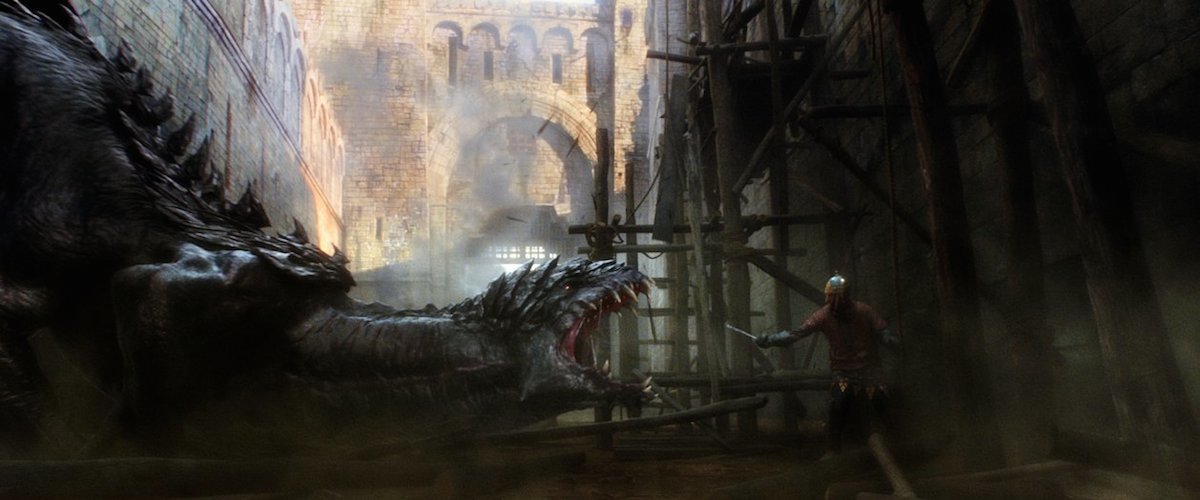
Seventh Son **1/2
I found himself rather enjoying more than a few portions of the movie, which indeed features a plethora of computer-animated monsters that at least seem to have been inspired by the work of such old-school tech masters as Ray Harryhausen.

[Ethan] Hawke, in a rather disarming display of cinematic virtuosity, cuts from Bernstein playing the piece, Bernstein directly addressing the camera, Bernstein directly addressing a live audience, keeping the music on a through line for the most part as Bernstein lays out its history and its significance for both himself and music itself.

She's Funny That Way **1/2
Too many times the characters in this movie sprint across the line separating quirky charm from know-somethingish affectation, and then stay on the wrong side of it. And this erodes the sunny farcical tone to which “She’s Funny That Way” aspires. It’s as if somewhere along the way this wannabe champagne got spiked with eager-to-please bennies.

Strange Magic *1/2
Around mid-film the Munchkin-type elf enters the dark forest to seek a love potion from the Sugar Plum Fairy (it’s complicated, as they say) and is given a semi-runaround by an albino rat referred to as an “imp.” I was thinking “It’s not every movie about which one can say ‘the best thing in it was the albino rat.’”

Sunshine Superman **1/2
The subject matter increasingly suggests a kind of cross between “Man On Wire” and “Grizzly Man,” but unlike “Grizzly Man” director Werner Herzog, director [Marah] Strauch has little interrogative spirit.

Taxi **1/2
[Jafar] Panahi’s latest act of defiance is entirely commendable on a number of levels, but I regret to say that from my own perspective, “Taxi” is the weakest of the films he’s made since he was enjoined from making them.

Ted 2 *1/2
While the first film offered, by my casual recollection, almost two dozen belly laughs, this one barely registers four. The mean spiritedness oozes beyond the racial stuff and reaches fuller flower at the movie’s climax, which is set at a comic geek convention, and yes, consider the possibilities.

Timbuktu ****
A thoroughly remarkable and disquieting film from Mali’s Abderrahamane Sissako, “Timbuktu” is also a work of almost breathtaking visual beauty, but it manages to ravish the heart while dazzling the eye simultaneously, neither at the expense of the other. It’s a work of art that seems realized in an entirely organic way.

True Story *1/2
Murder mystery, journalism exposé, courtroom drama, metaphysical inquiry into the secret-sharer nature of certain American Bros, proof that James Franco and Jonah Hill can serious-act opposite one another—it seems to be going for any one of these at any given moment, and in the end winds up being not a whole lot more than ostentatiously unpleasant and ugly.

24 Days ***
A well-engineered suspense drama from France directed by Alexandre Arcady. The movie [...] has a more upsetting dimension than most suspense dramas as it’s based on a true story, a story that touches on issues still roiling France today.

Two Men in Town **1/2
The perspective reminded me of a similar death-seen-from-a-great distance scene, in Abderrahmane Sissako’s extraordinary 2014 “Timbuktu,” but where Sissako’s scene showed a quiet, implacable assurance, Bouchareb’s presentation has a slight ring of manipulative dynamics, and overdetermination.

Do such outrages happen in real life? Of course they do, and they’re awful, but their representation in this work is so willfully heavy handed that coherence of any kind—artistic, dramatic, ideological—finds no bearing. As accomplished and committed as most of the cast is, one doesn’t so much find affinity with the characters they play as feel bad that they were compelled to enact such ugly movements.

Vacation *
“Vacation” is, minute to minute, one of the most repellent, mean-spirited gross-out comedies it’s ever been my squirmy displeasure to sit through.

The Wanted 18 ***
The absurdist sectarian comedy gives way, as it inevitably does in this conflict, to tragedy, and death both human and animal. While Shomali resists easy cynicism while seeming to have almost every excuse to indulge it, he doesn’t try to craft a hopeful parable out of his material either.

Once the viewer finds him or herself comfortable with the idea that it’s going for mildly-spine-tingling rather than gut-punching and eyeball-violating, all holy hell breaks loose. Which in this case turns out to be a pretty hellishly good thing.

We Are Your Friends *1/2
Lest the viewer come to the conclusion that this movie’s portrayal of the EDM drug culture is too cavalier, there does kick in near the end a Cautionary Tale Plot Point, which is arbitrary to the point of insulting. Except it’s too late to be really insulted, because one is already painfully aware of how unsuccessful the movie has been.

What We Did On Our Holiday ***
It wears not just its Britishness but its relative good taste on its sleeve: unlike its U.S. counterparts, there’s nary a poop or fart joke in evidence in this domestic comedy. It’s not what you’d call “major” cinema, but it’s a breezy entertainment, particularly if you’re a fan of one or more of the cast members.

A Year in Champagne **1/2
Many other seeming mysteries of process and designation, including the secret of how those bubbles come to animate a beverage that is not, in fact, carbonated, are provided in this brisk, entertaining film.
Chaz is the CEO of several Ebert enterprises, including the President of The Ebert Company Ltd, and of Ebert Digital LLC, Publisher of RogerEbert.com, President of Ebert Productions and Chairman of the Board of The Roger and Chaz Ebert Foundation, and Co-Founder and Producer of Ebertfest, the film festival now in its 24th year.





